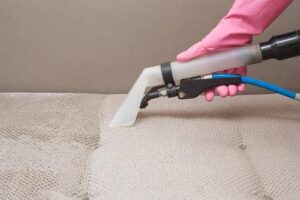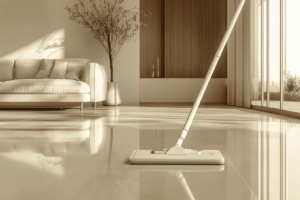In the pursuit of pristine living space, Wecasa’s cleaning services don’t just end with sparkling floors and dust-free shelves. Considering the sanctuary that is your bedroom, an often-overlooked aspect of a clean and healthy home environment is the very foundation of our nightly rest — the mattress. Just as you’d schedule a regular clean-up to keep your living space in top condition, it’s crucial to assess and ensure the quality of where you spend about a third of your life sleeping.
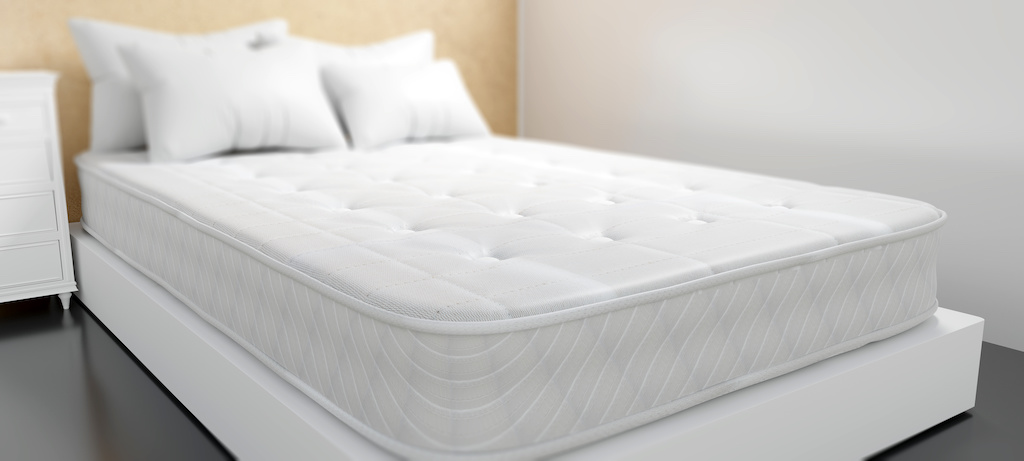
Why Changing Your Mattress Matters
Sleep is as vital to our health as a balanced diet and regular exercise, and the mattress we sleep on plays a significant role in that equation. But when should you consider changing it? Understanding how often should you change your mattress is not as straightforward as marking a date on the calendar every few years.
Instead, it involves paying attention to signs that your mattress is no longer providing the support and comfort you need. This nuanced approach ensures you’re not just adhering to a generic timeline but responding to the specific needs of your body and sleep quality.
Signs It’s Time for a New Mattress
- Increased discomfort: If you wake up sore or stiff more often than not, your mattress may be to blame.
- Visible wear and tear: Sagging, lumps, and the coils in spring mattresses can be clear indicators, not forgetting whether your mattress needs a clean
- Allergy symptoms worsening: Mattresses can accumulate dust mites and other allergens over time.
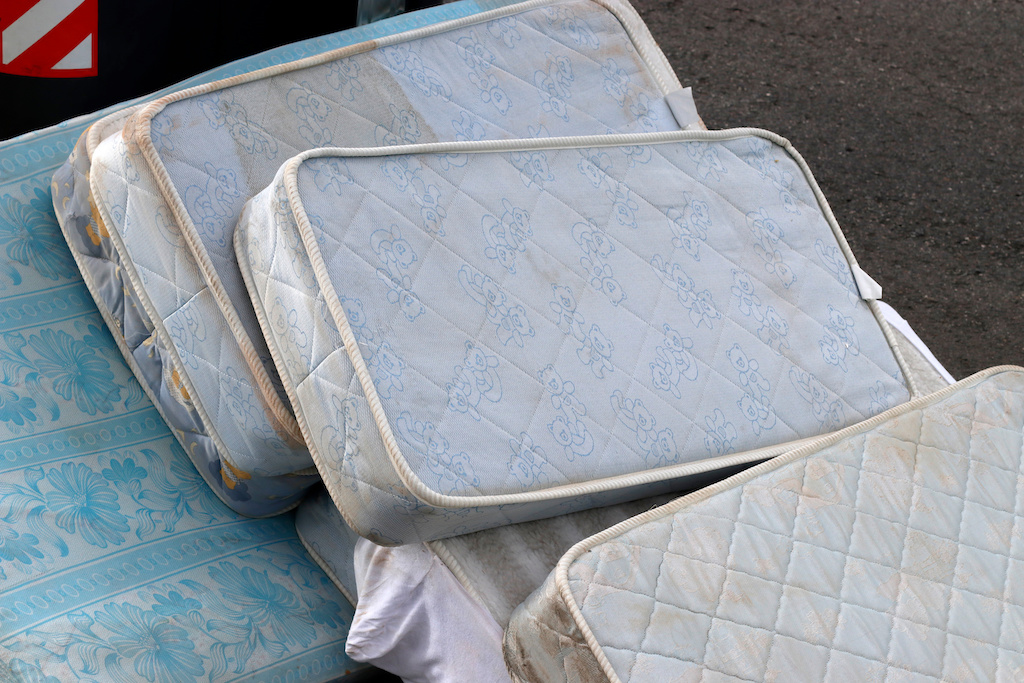
Understanding Mattress Lifespans Extended
To provide a deeper understanding of how often you should change your mattress and the factors that influence them, let’s expand the initial table with additional details and factors:
| Mattress Type | Expected Lifespan | Key Durability Factors |
|---|---|---|
| Memory Foam | 8-10 years | – Foam density: Higher-density foams last longer.<br>- Quality of the foam: Premium memory foams have better longevity.<br>- Care: Regular rotation can prevent early sagging. |
| Innerspring | 5-7 years | – Coil type: Pocketed coils may last longer than Bonnell coils.<br>- Coil count and gauge: Higher counts and lower gauges contribute to durability.<br>- Regular flipping and rotation can extend lifespan. |
| Hybrid | 8-10 years | – Combination of foam and coils: Quality of both materials matters.<br>- Foam density and coil gauge: Like their individual counterparts, these factors affect lifespan.<br>- Proper base support is crucial. |
| Latex | 10-15 years | – Type of latex: Natural latex tends to last longer than synthetic.<br>- Manufacturing process: Dunlop is denser, and Talalay is softer but both offer long durability.<br>- Ventilation and protection from moisture extend lifespan. |
Factors Affecting Lifespan Beyond Material
- Maintenance & Care: Using a mattress protector, cleaning spills promptly, and airing out the mattress can prevent mould and mildew, extending its life.
- Weight of Sleepers: Heavier weights may lead to quicker sagging or indentations, especially on softer foam mattresses.
- Usage: A mattress used nightly will wear differently compared to one in a guest room.
Improving Your Sleep Quality Extended
Investing in a new mattress is not just about replacing an old piece of furniture; it’s about committing to your physical and mental health.
Here are more insights into how a quality mattress enhances your well-being:
- Enhanced Sleep Quality: A mattress that properly supports the body and aligns the spine, reducing the risk of waking up with aches or pains. This alignment is crucial for entering deeper sleep cycles, which rejuvenate the mind and body.
- Reduced Back Pain: For those with chronic back issues, the right mattress can offer targeted support, alleviating pressure points and supporting the natural curve of the spine. Memory foam and high-quality hybrid mattresses are often recommended for back pain sufferers.
- Lower Stress Levels: Good sleep has been linked to lower stress and anxiety levels. A mattress that promotes restful sleep can help reduce cortisol levels and improve overall mood.
- Allergy Relief: Old mattresses can accumulate dust mites, pet dander, and other allergens that interfere with sleep and respiratory function. Newer mattresses, especially those with hypoallergenic properties, can mitigate this issue.
- Temperature Regulation: Technologies in newer mattresses, such as cooling gel foam layers, help regulate body temperature throughout the night, preventing overheating and ensuring a comfortable sleep environment.
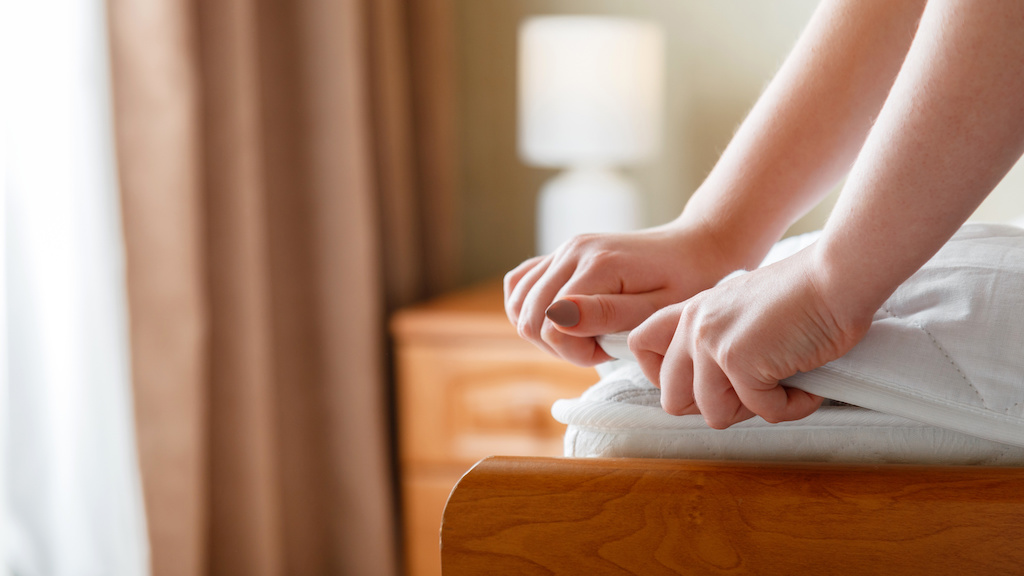
Maximising Mattress Longevity
Taking care of your mattress can extend its life and delay the need for a replacement:
- Rotate it every 3-6 months to ensure even wear.
- Use a mattress protector to guard against spills and stains.
- Ensure proper support from your bed frame to prevent sagging.
Choosing the Right Time and Mattress
When determining how often should you change your mattress, it’s crucial to assess various factors that contribute to the decision-making process. Choosing the right time for a mattress replacement involves more than just considering its age. It’s about recognising the signs of wear and understanding how your personal needs and lifestyle may have evolved.
Here are additional points to consider:
- Sleep Quality: Has your sleep been restless, or have you been waking up feeling unrefreshed? A decline in sleep quality can indicate it’s time for a new mattress.
- Physical Health: Notice any new or worsening aches and pains upon waking. Your mattress might not be providing the support your body needs anymore.
- Changes in Lifestyle: Significant lifestyle changes, such as moving in with a partner, can affect the suitability of your current mattress.
- Allergies: An increase in allergic reactions could be due to allergens and dust mites accumulating in your mattress over time.
- Warranty and Lifespan: Check the manufacturer’s warranty and consider the typical lifespan of your mattress type. Reaching the end of this period might suggest it’s time for a change.
When selecting a new mattress, thoroughly testing different types to discover the one that best matches your current preferences and needs is essential.
This includes considering:
- Material and Construction: Memory foam, innerspring, latex, or hybrid — each offers distinct benefits and durability.
- Firmness Level: Your preferred sleep position and body weight influence the ideal firmness level for optimal comfort and support.
- Size and Space: Ensure the mattress fits well in your bedroom and accommodates you (and your partner, if applicable).
- Budget: Factor in your budget but remember that a good mattress is an investment in your health.
Just as a clean home can refresh and rejuvenate, a new mattress can do wonders for your sleep quality and, by extension, your overall health. Wecasa’s dedication to enhancing your living environment goes beyond our top-tier cleaning services. By understanding when to change your mattress and choosing one that best suits your needs, you can ensure that your bedroom is not only clean but also a restorative haven. Together with Wecasa, embrace the path to a cleaner, healthier home and a life filled with restful nights.



